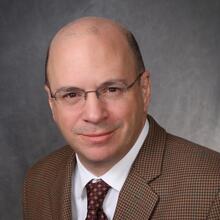The April 7 announcement by the U.S. Conference of Catholic Bishops that it would be terminating its cooperative agreement on refugee resettlement with the U.S. government was sad for several reasons.
First, it marked the end of an over 80-year commitment to refugee protection by the U.S. Catholic bishops, a commitment which formally began with the resettlement of refugees before and during World War II. Since 1980, when what was then called the U.S. Catholic Conference entered into a cooperative agreement with the federal government, the nationwide Catholic resettlement network has resettled one-third of the approximately three million refugees brought to the United States in dioceses across the nation.
The program had become a model of church-government cooperation and a source of pride among Catholics across the nation, many of whom volunteered to support the refugees. To stop this important work is to lose part of the church’s identity in the United States.
Second, the withdrawal looks like a capitulation to anti-immigrant opponents both in this administration and within the church who have strategized for years to force the U.S. church out of its work on behalf of refugees. These opponents have argued that the church should not be involved with the federal government—or take federal money—as it could compromise its ability to be faithful to Catholic teaching. This has not happened, as the U.S. bishops have made clear to successive administrations that they would not provide refugees with services, such as contraceptives, that do not comport with Catholic teaching.
Some politically conservative Catholic commentators have also asserted that the U.S. refugee program favors the resettlement of non-Christian refugees, threatening the nation’s Christian identity. In fact, the bishops have consistently advocated on behalf of the resettlement of Christian refugees in need of protection. But to its credit and in accordance with church teaching, the U.S.C.C.B. has honored the motto “need, not creed” in resettling refugees.
Opponents of the church’s resettlement efforts have also argued that refugees threaten national security, even though refugees go through multiple background checks and are the most vetted arrivals to the United States. Despite this false narrative, the bishops have maintained a steadfast commitment to refugee resettlement over the decades, demonstrating that the U.S. church walks the walk—not just talks the talk—when it comes to following Christ’s command to welcome the stranger. That commitment is now in question.
In his statement and opinion piece in The Washington Post explaining the decision to no longer work with the federal government, Archbishop Timothy P. Broglio, president of the U.S.C.C.B., reaffirmed that the church would continue to look for ways to support refugees in the United States. He gave no details, however, as to how this might be done, nor did he explain whether returning to the partnership with the federal government under a new administration would be an option.
One path forward is to revisit a proposal first made internally among the U.S. bishops circa 2008 and again in 2016: create a standalone agency to provide services to migrants and refugees. Such an agency, akin to Catholic Relief Services, would focus upon the needs of people on the move—refugees, migrants, unaccompanied children, asylum seekers and victims of human trafficking. One proposal at the time was to combine the U.S.C.C.B.’s Migration and Refugee Services with the Catholic Legal Immigration Network as a foundation for the agency.
Unfortunately, the bishops did not move forward on these proposals on either occasion. This proved to be shortsighted, as such an agency would have been able to diversify its funding sources and survive drops in annual refugee admissions and federal funding. It also would have insulated the bishops from false accusations that the U.S.C.C.B. was dependent on federal funding or pressured to make compromises in church teaching.
The U.S. refugee program, created by statute, will likely survive the Trump administration and be revived under a new president at some point, as it was under the Biden administration. In their promised discussions on how to help refugees moving forward, the bishops should seriously consider the creation of a standalone agency that can, at the appropriate time, again partner with the federal government to welcome refugees to the United States. Otherwise, any talk about standing with migrants may start to ring hollow.
[Also read: “U.S. bishops will cease refugee resettlement work with government after Trump funding freeze.”]







